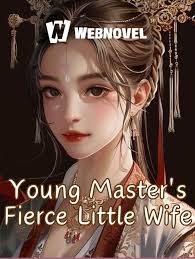The Story in 3 Sentences
Lexi Yang, the privileged and ruthless young miss of the Yang family, drives herself to suicide after her obsessive pursuit of CEO Morris Liu ends in total humiliation and ruin.
At the moment of death, she is intercepted by a whimsical otome love system that resurrects her with a new mission: to make her ex-fiancé’s best friend fall deeply in love with her.
Armed with second chances and sharp wit, Lexi navigates love, rivalry, and redemption in a world where every choice rewrites her fate.
Why It Stands Out
1. A Villainess Rebooted with Sass and Strategy
Unlike passive reborn heroines, Lexi Yang returns not to repent but to recalibrate—her sharp tongue, cunning mind, and unapologetic ambition turn the “white lotus” trope inside out. She doesn’t seek forgiveness; she demands fascination.
2. The Otome System as Narrative Engine
The story cleverly uses the “otome love system” not just as a gimmick but as a structural device that reframes romance as a game of emotional intelligence, forcing Lexi to evolve beyond manipulation into genuine connection.
3. Love Triangle Turned Inside Out
Instead of pitting women against each other for a man’s affection, the novel subverts expectations by shifting the romantic focus to Ethan Lu—the ex-fiancé’s best friend—making the real tension about self-worth, not rivalry.
Characters That Leave a Mark
There’s Ethan Lu – Morris Liu’s loyal yet perceptive best friend, whose quiet strength and guarded heart become the unexpected anchor Lexi never knew she needed.
You’ll meet Mia Chen, who embodies the gentle, fragile archetype Lexi once despised—but whose resilience and quiet dignity force Lexi to confront her own cruelty and grow beyond it.
And Churu? They’re the one who chirps from the void with chaotic energy, guiding Lexi through the otome system’s trials with a mix of absurdity and uncanny wisdom that blurs the line between AI and conscience.
The Flaws Fans Debate
Some readers argue Lexi’s redemption arc feels rushed, with her past viciousness glossed over too quickly for emotional authenticity.
Critics note the repetitive nature of system-based tasks, which can dilute narrative tension in the middle chapters.
Others point out that secondary characters like Morris Liu remain underdeveloped, serving more as plot devices than fully realized people.
Must-Experience Arcs
Ch. 1–50: Death and Reboot – Lexi’s dramatic suicide, system initiation, and first clumsy attempts to interact with Ethan Lu set the tone for her transformation from villainess to strategist.
Ch. 200–250: Hospital Confrontations – Tensions peak as Mia Chen’s vulnerability clashes with Lexi’s evolving empathy, forcing a pivotal shift in how Lexi views love and power.
Ch. 600–634: Final Script Choice – In the closing chapters, Lexi must choose between multiple romantic “endings,” but the real climax is her decision to define love on her own terms, not the system’s.
Killer Quotes
“Love isn’t about who you break to get to the top—it’s about who you lift so you both can stand.”
“Viciousness got me a tomb. Kindness might just get me a future.”
“You don’t win hearts by stealing them. You win them by showing yours—even if it’s cracked.”
Cultural Impact
Fans coined the term “Lotus Glow-Up” to describe Lexi’s journey from toxic antagonist to empowered romantic lead, sparking countless fan edits and character analyses.
The novel became a staple in “villainess redemption” recommendation lists across BookTok and Webnovel forums, often paired with titles like “Saving the Villain” by the same author.
Readers frequently quote Churu’s absurd yet oddly profound system prompts in memes, blending humor with existential commentary on love and choice.
Final Verdict
Start Here If You Want:
A sharp, system-driven romance where the heroine owns her flaws and fights for a second chance without losing her edge.
A fresh twist on the love triangle that centers emotional growth over melodrama.
Fast-paced storytelling with comedic undertones and satisfying character payoffs across 634+ chapters.
Study If You Love:
Narratives that deconstruct and rebuild the “white lotus” archetype through meta-commentary and genre-aware systems.
Explorations of female agency in romance fiction, where love is a choice, not a prize.
The intersection of game mechanics and emotional realism in modern webnovels.
Avoid If You Prefer:
Traditional, passive heroines who wait to be saved rather than taking control of their narrative.
Stories without supernatural or system-based elements—this novel leans heavily into its otome game framework.
Linear redemption arcs; Lexi’s journey is messy, inconsistent, and deliberately imperfect.





